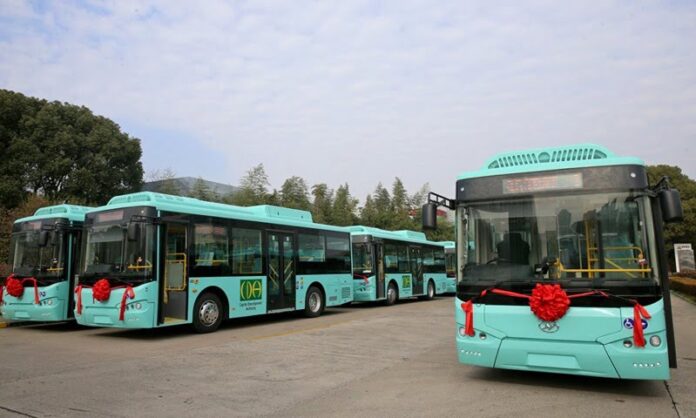The Capital Development Authority (CDA) has raised the fares for electric buses operating across Islamabad, effective Sunday. The fare for the Orange, Green, and Blue lines has increased from Rs50 to Rs100 per ride, following the CDA’s decision to revise its fare structure.
The fare hike applies to buses serving key routes, including the Orange Line (towards the airport), Blue Line (from PIMS to Gulberg Green), Green Line (from PIMS to Bhara Kahu), and electric buses plying on around 16 routes throughout the city. However, the fare for the Red Line Metro, operated by the Punjab government with federal subsidies, remains unchanged.
In a statement, CDA explained that the decision was driven by the need to address financial and operational challenges, particularly as the authority continues to subsidize the cost of running the metro and electric bus services. Currently, CDA pays approximately Rs350 per kilometer to its contractor, the National Radio and Telecommunication Corporation (NRTC), for operating these electric buses.
The CDA’s fleet includes 160 electric buses, though only around 120 are operational due to a shortage of charging facilities. A new depot at Zero Point is being built to resolve this issue, which will provide full charging capacity to the fleet. Despite the fare increase, the CDA will continue to offer subsidies to keep services affordable for commuters.
The revised fares are expected to bring in Rs2.33 billion in revenue for the CDA, compared to Rs1.46 billion from the previous Rs50 fare. However, the CDA will still need to provide a substantial subsidy of Rs2.79 billion annually to maintain service levels. The subsidy was previously Rs3.66 billion when the fare was Rs50 per ride.
CDA Chairman and Islamabad Chief Commissioner Mohammad Ali Randhawa defended the fare adjustments, noting that they were necessary to sustain high-quality services. “Providing modern, eco-friendly transportation to Islamabad’s residents is our priority,” he said. “This increase in fares is not intended to burden citizens but to ensure the continued provision of comfortable, accessible, and air-conditioned transport.”
In response to concerns raised by residents about the affordability of transport, the CDA is working on implementing a new policy to provide concessional fare packages for specific groups, including office workers, students, and senior citizens. These discounted fares will be available for daily, weekly, and monthly commuters. Additionally, the CDA is considering introducing bus cards that offer further reductions for regular passengers.
The CDA also confirmed that its electric buses serve more than 85,000 commuters daily, providing a crucial service in a growing city where traffic congestion is a significant issue. Despite concerns about the adequacy of bus stops and signage, CDA officials assured that the information would soon be made available on Google Maps to help residents plan their commutes effectively.
In the coming months, the CDA aims to continue expanding its electric bus fleet and improve the city’s public transport infrastructure to meet the needs of Islamabad’s growing population.




